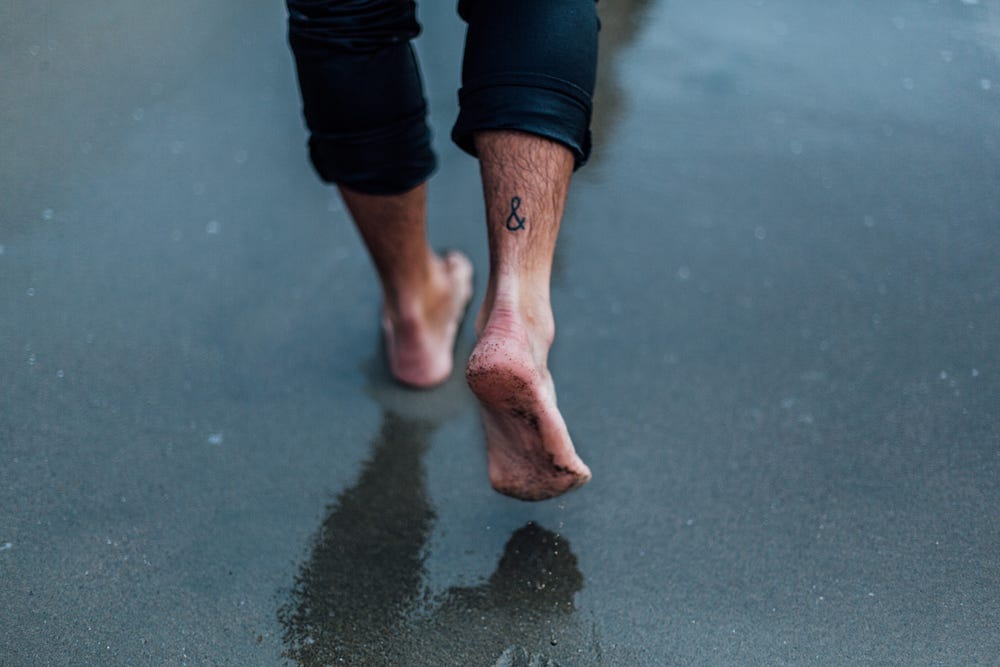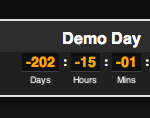Should you apply to YC? YES, but here’s one reason why you shouldn’t
 Photo by Lucas
Sankey
on
Unsplash
Photo by Lucas
Sankey
on
Unsplash
Originally published at
**blog.crowdbooster.com*
on March 16, 2011. Ricky and I ended up sunsetting the Crowdbooster product in
December 2016, but we’re still working better than ever together. *Upbeat
modernizes and democratizes the way companies and sources with stories connect
with journalists and media*. Hope you enjoy reading,
and if there’s ever anything I can help with, just *tweet @dtran320
*or email my first name at upbeatpr.com if
it’s longer than *1̶4̶0̶ *280 characters.

-202 days. That’s what Mark’s Demo Day countdown widget reads. This time last year, Ricky and I had submitted our YCombinator app and were in the middle of finals during our senior year at Stanford when we were invited to interview at YC. A few days after that, I left for a seven-day Mexican Riviera cruise that got back the day before our interview.
Ricky and I had been working together for over a year at that point and gone through three prototypes, a previous YC rejection and numerous other No’s, so this interview seemed like a breakthrough opportunity. With the interview nine days away, I felt horribly unprepared, needed to work on our product demo, and just felt bad going away for Spring Break while Ricky prepped for the interview. On the other hand, I had just finished finals and wanted to celebrate my 22nd birthday while enjoying my last spring break with my friends. I settled on flying back early from a port halfway through the cruise to prep for the interview before a travel agent promptly informed me that by doing so, I’d be committing maritime treason. So I packed my laptop, tried to enjoy the trip and paid $.55/minute for cruise ship wi-fi to talk to Ricky and work on our prototype before we went in for our interview (if you ever want to stop procrastinating online, try working on slow wifi that costs $.55/minute).
We arrived at the YCombinator office with a working prototype of Conversely, an on-the-fly forum that connected you in real-time with other people on Twitter interested in the same topics. After ten whirlwind minutes that included references to Lady Gaga and AirBnB, spewwing something about Bayesian filtering to PG, and some vague notion of how we were revolutionizing forums and connecting businesses to customers, we left the office feeling uncertain. But we got a call later that day: we had been accepted into the summer batch and were officially YCombinator-funded!
This is not to say that I wasn’t serious about our startup before, but at this moment, it felt infinitely more tangible than ever before. Ricky and I worked together well, but it didn’t feel like we were moving very quickly developing the product. We considered stopping out of the last quarter of school, but that didn’t address a fundamental problem: I didn’t feel confident or comfortable as the only hacker. We needed help.
Ricky and I met Mark at Startup School in October 2009 (I guess we have to begrudgingly thank Berkeley for at least that much). We knew he had co-founded a venture-backed startup before coming back to Stanford. We liked him and knew that he was a great hacker. But most importantly, I had worked with him on our senior project and knew we worked together well. Mark formally became our third co-founder a few hours after we learned we had gotten into YC (who knew that YC funding would be only the second best thing to happen to us that day?).
With the founding team reinforced, we pushed the product forward over the next few weeks, but user studies with early alpha testers suggested that perhaps we had built a solution for a non-existent problem. We knew where to go for help: we immediately scheduled office hours with PG. The first words out of his mouth were: “Why did I fund you guys again? This sounds like a classic failed startup. You need to make something people want.”
We told PG about the dozens of businesses on social media we had talked to — we
wanted to connect them with users interested in specific topics: “That’s right —
now I remember why I liked this!” A lot of signs pointed towards focusing on
businesses, but we weren’t ready to give up on our original idea yet. We showed
Conversely to all of our friends and none of them understood it. Test users
seemed to understand the product only when it was used for Q&A, so we boiled it
down to a simple Q&A service on top of Twitter. Still nobody used it. We
remained upbeat, but definitely had moments where it felt like we were in
freefall.
84 days until Demo Day. The first YC dinner came and went,
then finals, then graduation. We moved into a house together and worked pretty
much around the clock to beat the clock: 73 days, 72, 71… From on-the-fly forums
to Q&A to Twitter groups, we stayed positive throughout, trying to learn from
our users, however few and far between they were. We received great feedback and
advice from the YC partners as well as our fellow YC founders and kept iterating
quickly, but we couldn’t seem to find anything that stuck with users.
Four weeks passed. Prototype Day. The pitch
we came up with: something about how we’re going to make Ricky into a Twitter
celebrity. 60 days until Demo Day. Time between YC weekly dinners seemed to
contract. We kept talking to businesses about social media and hacked together
prototypes. We applied sentiment analysis to identify your biggest fans and
biggest detractors. We built a series of Twitter campaign tools, one of which we
affectionately called “The Retweet Bomb”. We pulled all-nighters, hacked
non-stop, called up and visited businesses, even became social media managers —
whatever it took to find solid footing while the countdown ticked: 33 days, 32,
31…
We couldn’t find anything out there to really show that the campaigns we were
running were effective despite the bevy of social media analytics tools out
there. Hundreds of businesses and social media professionals we talked to echoed
the same sentiment. We built the prototype of a basic analytics dashboard in a
week. People started giving us really positive feedback. Celebrities and brands
started using it, even offering to pay us for it. Demo day went well, and the
202 days since haven’t been too shabby either, but more on that later (Follow
@Crowdbooster to stay up-to-date).
Eric Ries describes a pivot
as
a successful startup that can “keep one foot in the past and place one foot in a
new possible future.” Lessons learned from customer development and previous
iterations surely comprise the pivot foot, but your team better provide the
solid ground on which you’re pivoting. If we hadn’t had extensive prior working
experience together, we probably would not have survived the summer. Anything
and everything in a startup can and probably will change — the only thing you
can really control is whom you go into battle with.
You won’t hear a shortage of reasons to apply for YC, so I won’t get into any of those here (there was also some recent announcement having to do with 150 Kazoos or something). But I’ll tell you one reason why you shouldn’t: if you don’t have the heart and the team to go through five product pivots in three months and back, then you shouldn’t **apply to YC.**
Original discussion on Hacker News
P.S. This post is not meant to discourage any teams from applying — it is merely a story about our YC experience. If you feel like your team is ready to tackle anything, fantastic — send me an email: first name at upbeatpr.com. If not, why not spend so time getting to know each other really well outside of your startup idea? Those hours spent watching a game together or just chatting over drinks might be the key to your company’s survival (this sounds like advice, so take it for what you will).
Originally published at
blog.crowdbooster.com
on March 16, 2011.
Thanks for reading!
If you enjoyed this post, check out my latest post: Burnout and Basketball Dynasties:
An exploration of burnout, personal growth, and how lessons from the Golden State Warriors dynasty relate to long-term goals in life.
Read more →
Or subscribe to get notified of new posts: